BrazilEditora Estação Liberdade Ltda
Ever since its founding in 1989 in the Japanese neighborhood of the Liberdade district of São Paulo, this company has translated and published world classics, contemporary novels, and East Asian literature in subjects ranging from culture to philosophy, history, architecture, and more. From its inception, the company has enjoyed strong ties with the Japanese-Brazilian community and Japanese-Brazilian authors, and has grown to become one of the major Japanese literary publishing houses in Brazil. As of April 2022, it has published 78 Portuguese translations of Japanese works.
Projects supported by Japan Foundation grants
- 2007
- Contos da palma da mão (Tenohira monogatari; Palm of the Hand Stories) by Kawabata Yasunari
- 2008
- Eu sou um gato (Wagahai wa neko de aru; I Am a Cat) by Natsume Soseki
- 2010
- Tempo e espaço na cultura japonesa (Nihon bunka ni okeru jikan to kukan; Time and Space in Japanese Culture) by Kato Shuichi
- 2012
- The cinema Japonês na Liberdade (Experience of Japanese Cinema in the Liberdade) by Alexandre Kishimoto
- 2013
- O castelo de Yodo (Yodo dono nikki; The Castle of Yodo) by Inoue Yasushi
- 2016
- A fórmula preferida do professor (Hakase ga aishita sushiki; The Housekeeper and the Professor) by Ogawa Yoko
- 2018
- Querida konbini (Konbini ningen; Convenience Store Woman) by Murata Sayaka
- 2021
- A substituição ou as regras do tagame (Torikae ko (Chenjiringu); Changeling) by Oe Kenzaburo
Our greatest sources of information are our long-standing partnerships with publishing professionals and researchers around the world and with Japanese authors and publishers
Angel Bojadsen
Editorial Director
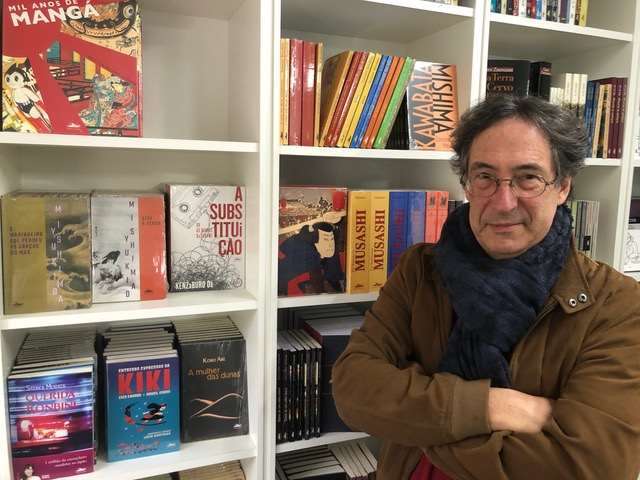
Tell us a bit about your work in translating and publishing Japanese literature.
Liberdade is a publishing company founded in 1989 in São Paulo. We were involved in translating and publishing Japanese literature right from the start because our first head office was located in the Liberdade district, where there are many Japanese people, and we had many connections with the Japanese-Brazilian community and its authors, and also because our founder was Japanese-Brazilian. Ever since then, we’ve had a close relationship with Japan, and today we are the main publisher of Japanese literature in Brazil.
I have been head of this publishing house since 1994. Initially, I was involved with the works of Tanizaki Jun’ichiro and Kawabata Yasunari, but since the 2000s, I have been involved with the works of Kawakami Hiromi, Yoshimoto Banana, Ogawa Yoko, Murata Sayaka, Oe Kenzaburo, and others.
Discovering Japanese literature has been an important part of my life.
Currently, I’m working on not just Japanese literature but Korean and Chinese works as well, and I’m interested in Asian literature in general.
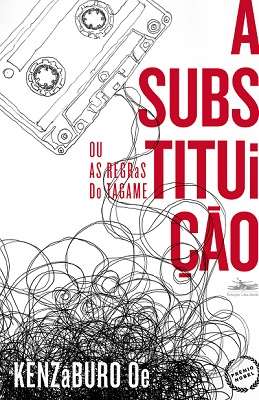
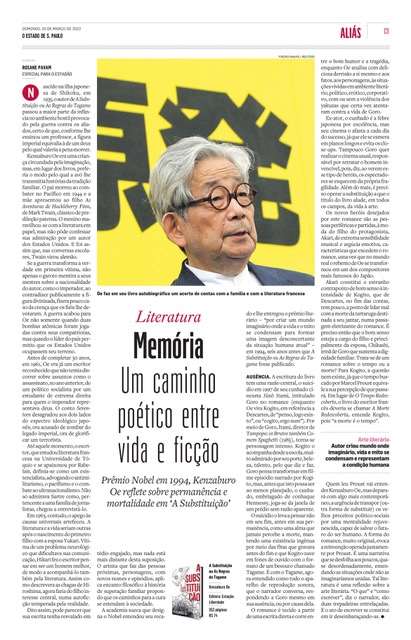
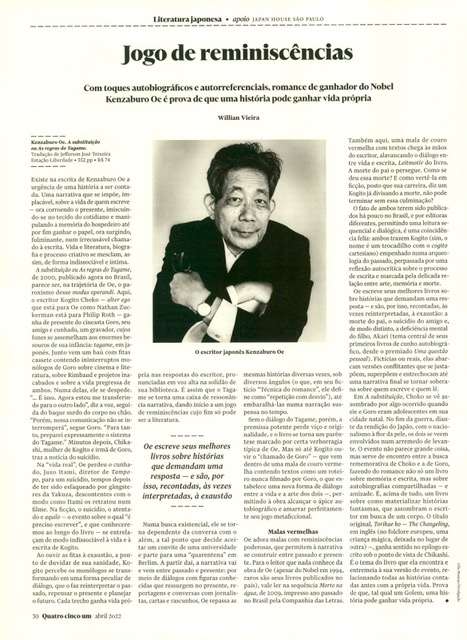
A substituição ou as regras do tagame, the Portuguese edition of Changeling by Oe Kenzaburo, was reviewed by some of the most widely read newspapers in Brazil.
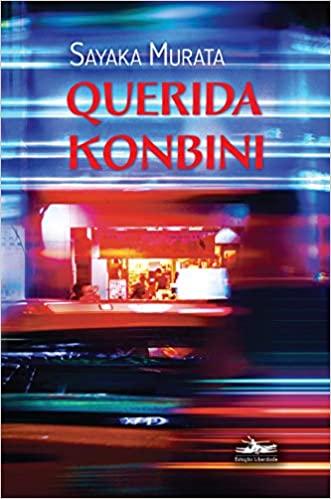
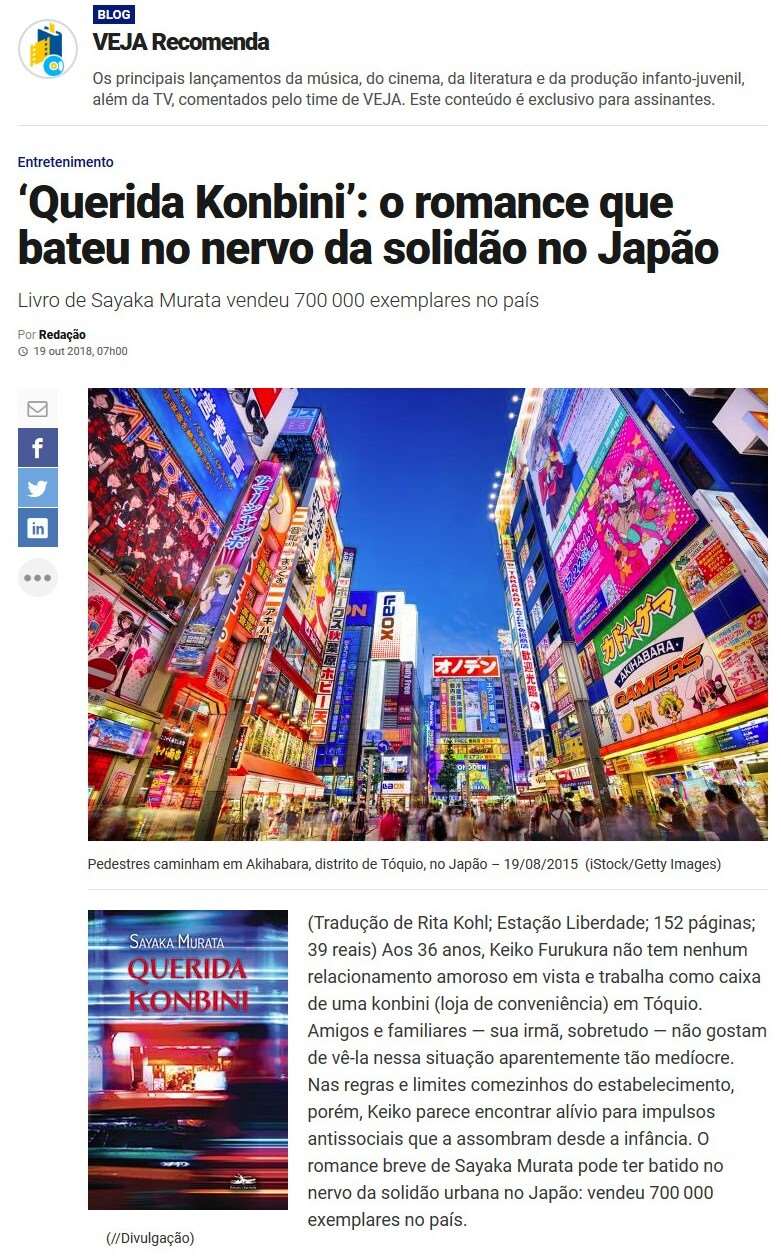
Querida konbini, the Portuguese edition of Convenience Store Woman by Murata Sayaka, generated a lot of interest when it was featured in book reviews and other publications.
How do you get information on Japanese books and works?
I think contacting Japanese publishers directly is a good way to get information, wherever possible, but it’s not easy due to the language barrier.
Recently, however, we have been able to make direct contact with some relatively small Japanese publishers. We may also be entering into some contracts directly. I believe this is due to our track record of publishing a large quantity of Japanese literature.
Referrals from academics, researchers, translators, and agents are also important sources of information. Information from people we’ve met in Japan is also very useful. In fact, I first became aware of Ogawa Yoko after speaking about Japanese women writers with one of my main advisors on Japanese literature, Donatella Natili, who is an Italian university professor residing in Brasília. While we can obtain information by doing our own research, such personal contacts are also a very important source of input.
What do you find difficult about translating and publishing literature?
Very few people in Brazil want to become literary translators. Those who have attained Japanese fluency tend to go into technical translation as it is more lucrative. Young people are very interested in Japanese literature and culture, and we’d like to increase the number of young translators working for our company, but the quality of the translation must be paramount.
We’re currently working with seven or eight translators, and we consider improvement of the quality of our translations an important issue. There are differences in both grammar and sentence structure when translating from Japanese into Portuguese, and when translating Japanese works into Portuguese, having lived in Japan for an extended time is a great advantage. Some works, such as Murata Sayaka’s Querida konbini, which has sold very well and is in its fifth printing, are difficult to translate without a deep knowledge of Japanese culture, society, and modern circumstances.
Of course, as a publishing company, in addition to translation, we also focus on finishing, reviewing, and editing and we’ve earned a reputation for the high quality of our publications. In this, too, we are always mindful of the characteristics and customs of the Japanese people, and considering that the average reader has some knowledge of Japan, we try to make sure that footnotes are appropriately detailed without being overstated.
We’re passionate about working together with our translators to produce quality work.
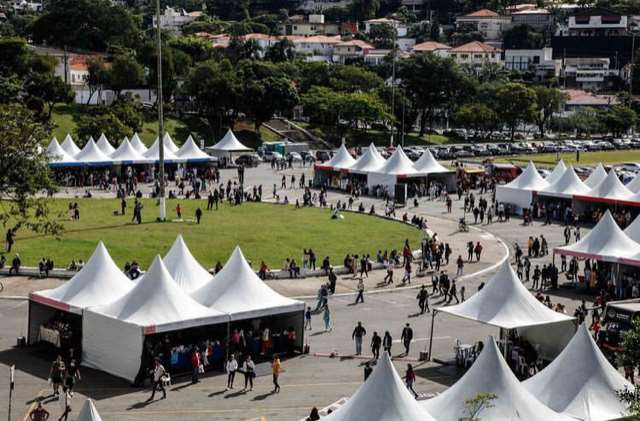
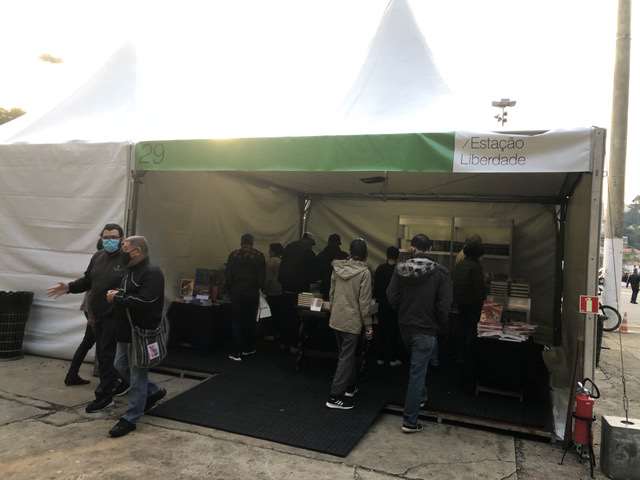
Book lovers crowd the Liberdade stand at a book fair in São Paulo in 2022.
It seems that you place emphasis on translating directly from Japanese.
In the past, it was common to use translations from Japanese into French or English, and then into Portuguese. But these days, we translate directly from Japanese into Portuguese. This is largely related to changes in readership.
One of the major catalysts for this was the attempt to translate Murakami Haruki’s works directly from Japanese into Portuguese. This was just around the time of the 2006 international symposium on Murakami in Japan.* At that time, the movement to translate directly from Japanese into Portuguese was gradually gaining momentum among readers and book buyers, who tended to reject indirect translations into Portuguese, instead demanding translations that were more faithful to the original texts. Since then, “direct translation” has become established as a new standard for translation. That’s how much the level of knowledge of our readers has increased. As publishers, we too have a very high degree of knowledge about the authors.
* The international symposium and workshop “A Wild Haruki Chase: How the World Is Reading and Translating Murakami” held in Tokyo, Kobe, and Sapporo in March 2006 (organized by the Japan Foundation)
What shifts have you seen over the past 20 years in the Brazilian readership of Japanese literature ?
Our readership, which initially consisted mostly of students and others studying Japanese literature, has expanded to include a wide range of people of all genders and ages. Most of the participants at our live online events have been 25 to 35 years old. At the University of São Paulo, a book fair is held in November every year. It is attended by a lot of people, both students and the general public, to the extent that some people hold off on buying books around July and August and wait to buy them at the fair. When we ran a booth at the book fair, we had a lot of people asking us directly if we had any new works, or any new titles by Ogawa Yoko or Yoshimoto Banana. This also happens at other fairs and events. It is not just the authors that are well-known, but the Japanese translators as well. Having grown accustomed to Western literature, people tend to find the differences refreshing, and so interest in the literature of Asian countries, which hadn’t been an object of attention until now, is growing tremendously. The different ways of seeing the world, different types of prose, and different writing styles are drawing this interest. We also look forward to seeing how our readership will change in the future.
Interview recorded February 4, 2022
Photos courtesy of Editora Estação Liberdade Ltda
See Also....
-
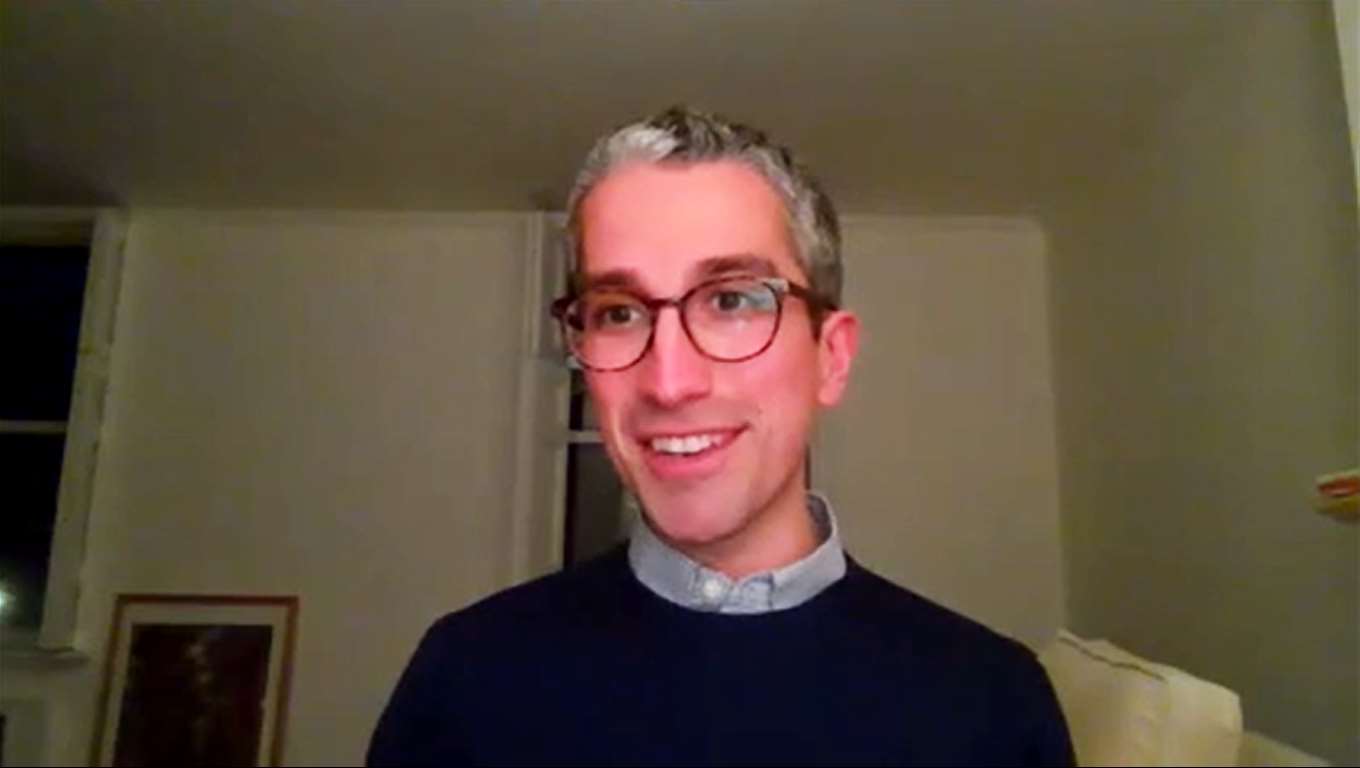
USA
Grove/Atlantic, Inc.
Peter Blackstock#Publisher Spotlight -
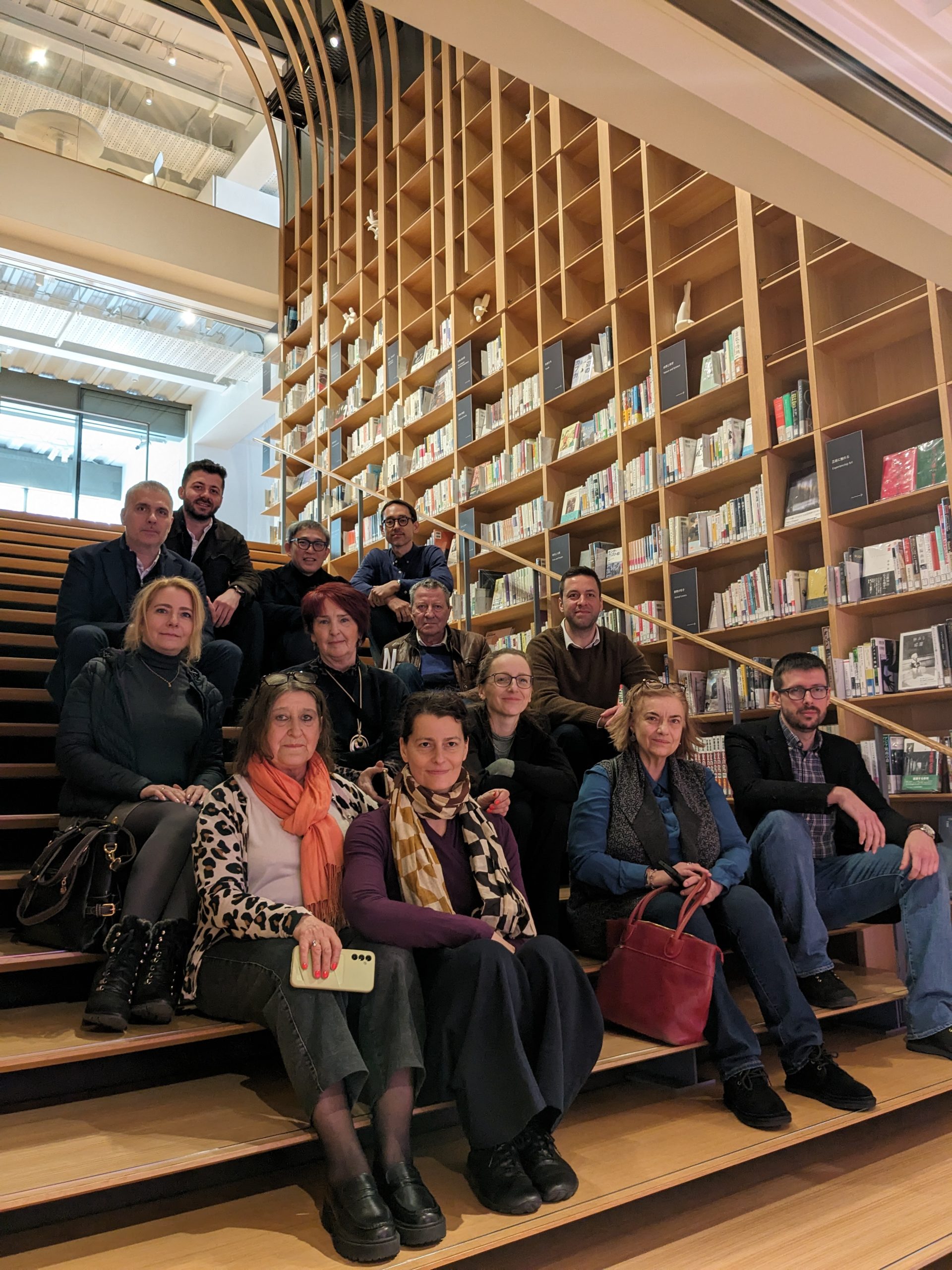
Central and Eastern European Editors’ Visit Report 2024
#CentralAndEasternEuropeanEditors2024 -
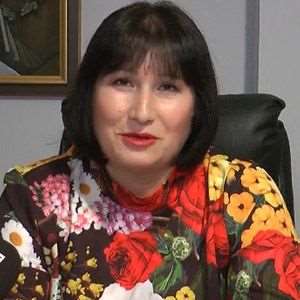
Albania
OMBRA GVG Publishing House
Vasilika Tafa#Publisher Spotlight -
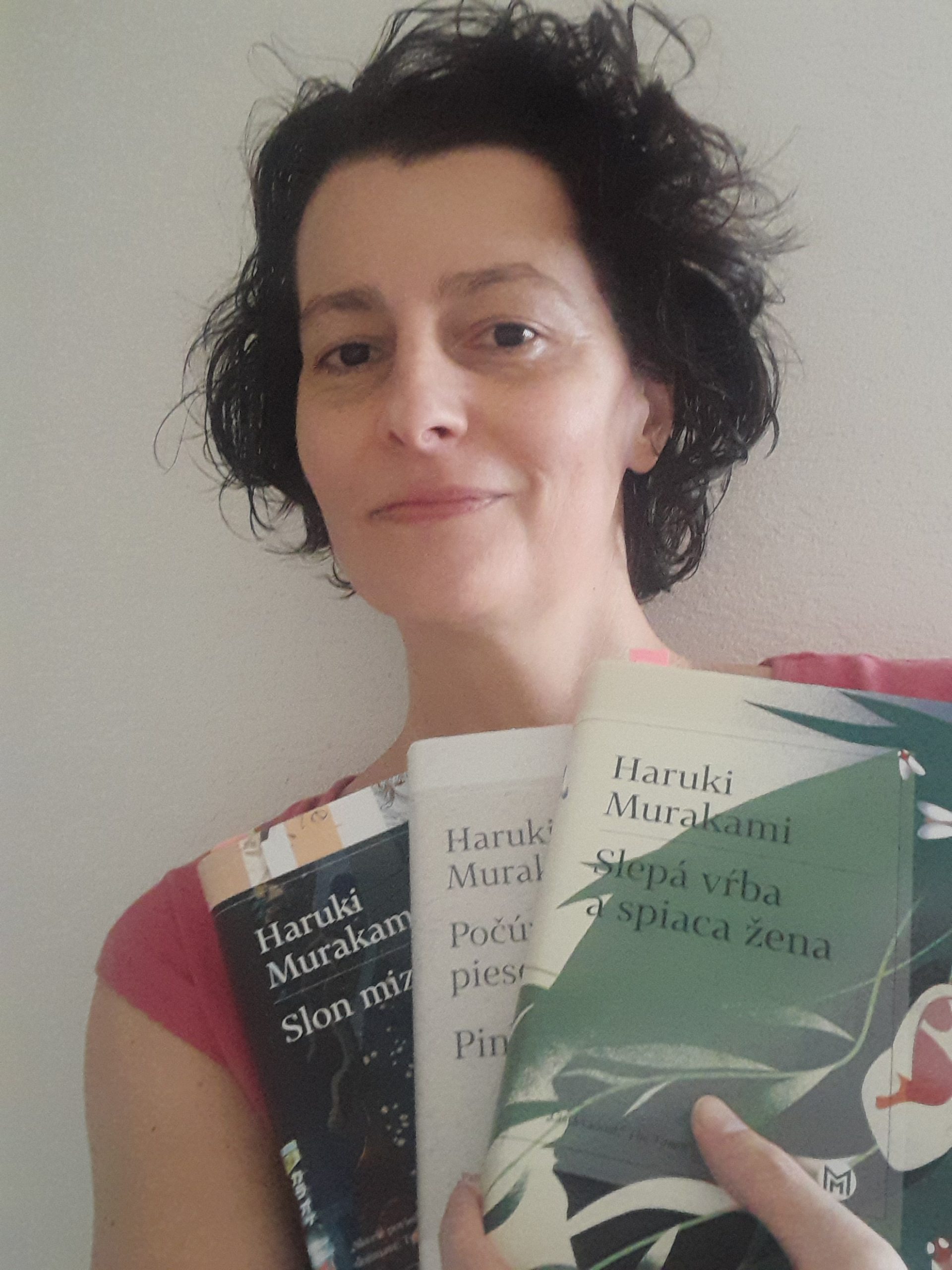
Slovakia
Darina Zaicova
SLOVART Publishing House#CentralAndEasternEuropeanEditors2024
